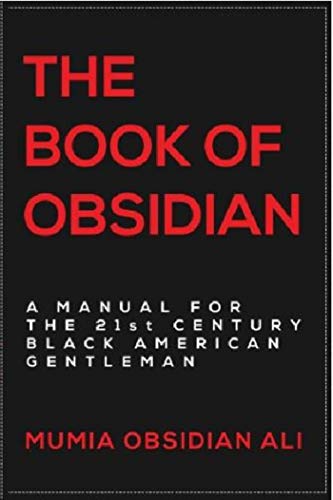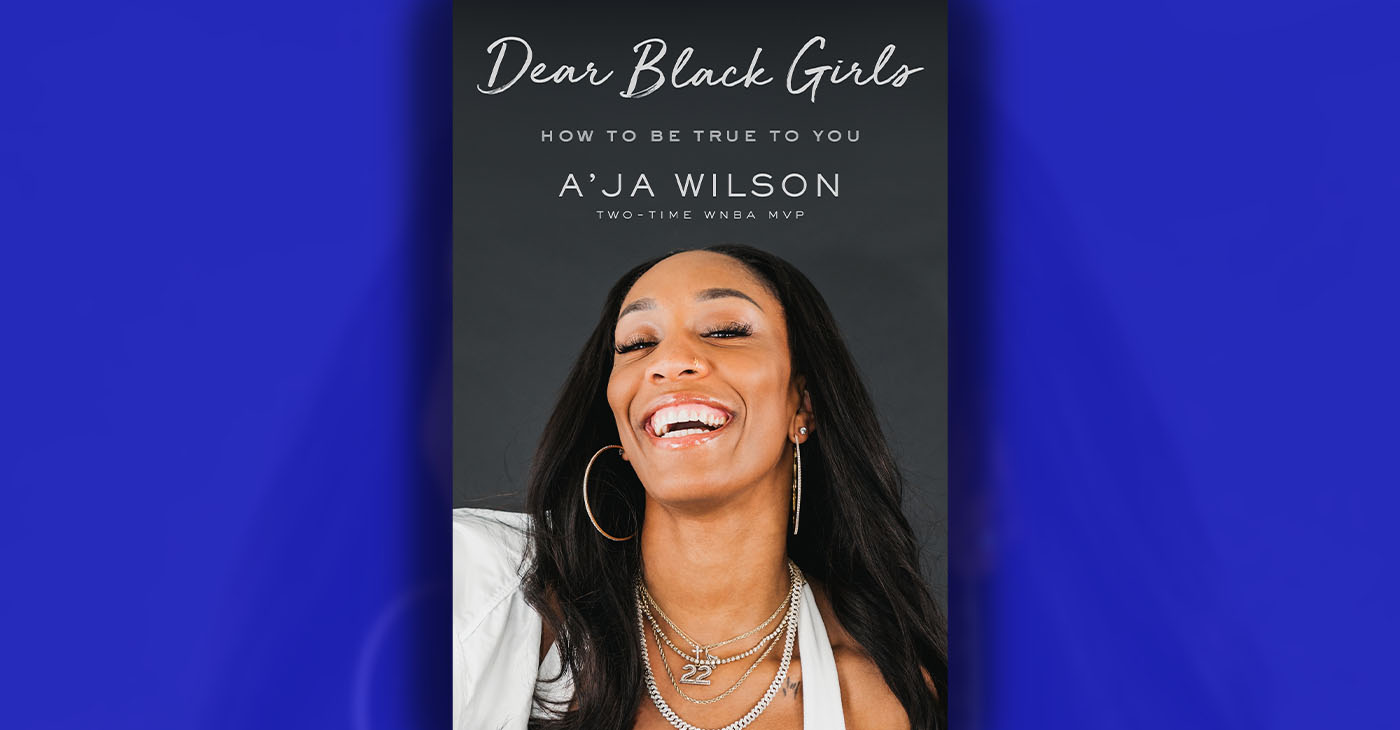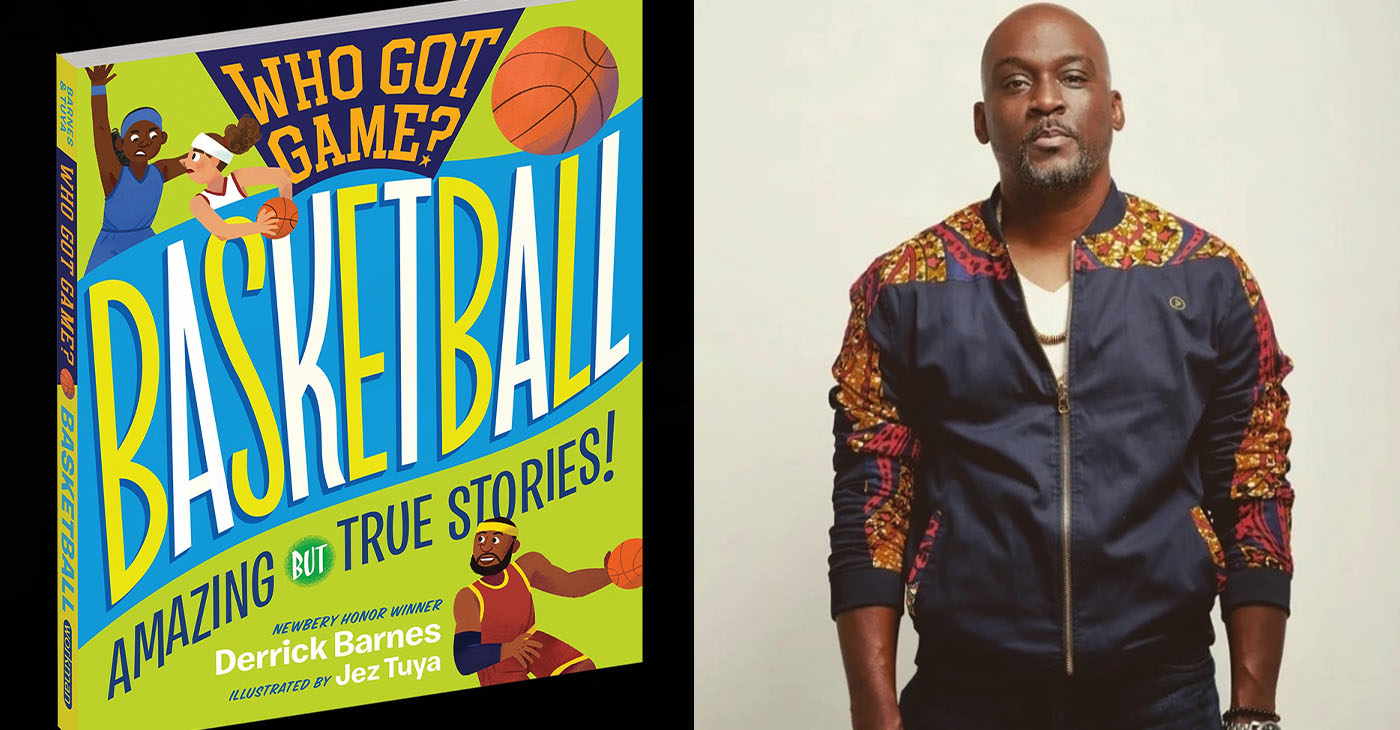Book Reviews
‘The Book of Obsidian: A Manual for the 21st Century Black American Gentleman’
The 450-page reader focuses on Black dating and male and female relationships, a subject that has been a large focus for his weekly podcasts over the past four years. He believes the situation between Black men and women is dire.

Based on everything he puts to paper, the prolific novelist and essayist Ishmael Reed has been called a writing pugilist. Social media personality and DJ Mumia Obsidian Ali can be viewed in that same light. Ali is a fighter for the everyday Black man in his radio shows and on his YouTube platform.
The 52-year-old Philadelphia native is one of the most influential voices online as one of the co-founders of Black Manosphere, the African American section on YouTube, which deals with helping uplift Black men. The Black Manosphere has content creators who deal with self-improvement, popular culture, family development, hip-hop culture, history and mating and dating.
The first manifesto of the Black Manosphere is Ali’s recently released book, the ‘Book of Obsidian: A Manual for the 21st Century Black American Gentleman.’
The 450-page reader focuses on Black dating and male and female relationships, a subject that has been a large focus for his weekly podcasts over the past four years. He believes the situation between Black men and women is dire.
“Successful Black men and women just can’t get along, especially when you consider that when Black Americans were under the heel of Jim Crow itself, more were married then whites,” writes Ali.
Ali’s book is comprised of new essays and others written for the Negromanosphere, an online web publication started by Oshay Duke Jackson, another founder of the Black Manosphere.
Like Ali’s witty and combative talking style on the microphone, in his writing Ali paints a complicated picture of how Black relationships are marred by the old paradigm of the negative Black male image.
This image dates back to the 1980s and 1990s when Black men were portrayed in the media and in song as irresponsible, in prison, on drugs, unemployed or unambitious. This has led to many Black women asking, “where are the Black men at?” One of the first things he does in the book is to dispel this myth.
“Not only do more Black men attend and graduate from college today,” writes Ali. “There are actually more of them doing so than at any other point in American history.”
He writes that the negative perception of Black men makes Black women feel they do not have suitable mates when this is far from the truth. More than 52% of Black men have never been married and are childless. Of those that are married, 85% have Black wives and that Black men are more likely to be married then Black women.
The book has two parts. The ‘Macro’ takes a newspaper story or contemporary look at dating topics with Ali’s commentary on the issues and news article. The book then takes a ‘Micro’ examination of issues in which Ali deals with mating and dating.
At times the book drags on as it’s probably 100 pages too long, but you get the point that Ali has a lot to say and get off his chest. So much so, he has stated, the ‘Book of Obsidian,’ will be the first in a trilogy of books.
Ali’s ‘Book of Obsidian’ will give you an overview on how we got to where we are and where things are going to go. He said there needs to be re-examination of how Black men and women relate to each other as we move on with the rest of the 21st century.
The Book of Obsidian can be purchased online at Amazon, Barnesandnoble.com, Booksamillion.com, Bookbaby.com and various other online and book stores across the country.
Book Reviews
Book Review: Books for Poetry Month by Various Authors
Picture books for the littles are a great way to introduce your 3-to7-year-old to poetry because simple stories lend themselves to gentle rhymes and lessons. “See You on the Other Side” by Rachel Montez Minor, illustrated by Mariyah Rahman (Crown, $18.99) is a rhyming book about love and loss, but it’s not as sad as you might think.
c.2023, 2024, Various Publishers
$18.99 – $20.00
By Terri Schlichenmeyer
On your hands, you have lots of time.
You can make a song, or you can make a rhyme. Make a long story, make a short one, write what you like, make it simple and fun. Writing poetry uses your imagination: you play with words, paint a picture. There’s no intimidation. Creating poetry can be a breeze, or just reach for and read books exactly like these…
Picture books for the littles are a great way to introduce your 3-to7-year-old to poetry because simple stories lend themselves to gentle rhymes and lessons. “See You on the Other Side” by Rachel Montez Minor, illustrated by Mariyah Rahman (Crown, $18.99) is a rhyming book about love and loss, but it’s not as sad as you might think.
In this book, several young children learn that losing someone beloved is not a forever thing, that it is very sad but it’s not scary because their loved one is always just a thought away. Young readers who’ve recently experienced the death of a parent, grandparent, sibling, or friend will be comforted by the rhyme here, but don’t dismiss the words. Adults who’ve recently lost a loved one will find helpful, comforting words here, too.
Flitting from here to there and back again, author Alice Notley moves through phases of her life, locations, and her diagnosis and treatment of breast cancer in her latest poetry collection, “Being Reflected Upon” (Penguin, $20.00). From 2000 to 2017, Notley lived in Paris where she wrestled with breast cancer. That, and her life abroad, are reflected in the poetry here; she also takes readers on a poetic journey on other adventures and to other places she lived and visited. This book has a random feel that entices readers to skip around and dive in anywhere. Fans of Notley will appreciate her new-age approach to her works; new fans will enjoy digging into her thoughts and visions through poems. Bonus: at least one of the poems may make you laugh.
If you’re a reader who’s willing to look into the future, “Colorfast” by Rose McLarney (Penguin, $20.00) will be a book you’ll return to time and again. This, the author’s fourth collection, is filled with vivid poems of graying and fading, but also of bright shades, small things, women’s lives yesterday and today, McLarney’s Southern childhood, and the things she recalls about her childhood. The poems inside this book are like sitting on a front porch in a wooden rocking chair: they’re comfortable, inviting, and they tell a story that readers will love discovering.
If these books aren’t enough, or if you’re looking for something different, silly, or classic, then head to your favorite bookstore or library. The ladies and gentlemen there will help you figure out exactly what you need, and they can introduce you to the kind of poetry that makes you laugh, makes you cry, entices a child, inspires you, gives you comfort, or makes you want to write your own poems. Isn’t it time to enjoy a rhyme?
Book Reviews
Book Review: “Dear Black Girls: How to Be True to You” by A’Ja Wilson
The envelope on the table is addressed to you. It caught your attention because — who, besides politicians, utilities, and creditors sends anything in the mail these days? Still, it was a nice surprise, no matter what, like a throwback or something. And like the new book, “Dear Black Girls” by A’Ja Wilson, every letter means something.

c.2024, Moment of Life Books /Flatiron Books
$24.99
192 pages
Photo Caption: Courtesy of A’Ja Wilson
The envelope on the table is addressed to you.
It caught your attention because — who, besides politicians, utilities, and creditors sends anything in the mail these days? Still, it was a nice surprise, no matter what, like a throwback or something. And like the new book, “Dear Black Girls” by A’Ja Wilson, every letter means something.
From the time she was born until she was in fourth or fifth grade, A’Ja Wilson lived in a bubble. She didn’t know it; she was only a kid, just being herself with no worries. And then, right before one of her best friends was having a birthday party, Wilson learned that the girl’s dad “really [didn’t] like Black people.” Those few words shook Wilson’s dad, they made her mother quietly angry, and they made Wilson doubt herself for many years.
It was her first reminder: “You’re a girl.
Oh! And you’re a Black girl.
Alright, good luck!”
With the help of her parents and her beloved grandmother, Wilson healed but she never forgot. She made sure to know her roots and her family’s story. She was dyslexic, so she struggled, tried to fit in, and grew taller than most boys, which didn’t help her self-esteem. Neither did the fact that at almost every point in her life, the color of her skin mattered in ways that it shouldn’t have mattered. That included her activity on a basketball court.
Wilson was a young teen when her father first threw her a ball and she hated it, but by the time she graduated from high school, she’d found her way. She’d developed a good “Nonsense Detector.” She got some therapy (“Ain’t no shame in it.”); she learned that when she did her best, there were still going to be haters; and she always remembered to be herself and to be a light for others.
Remember, she says, “You don’t have to be an WNBA player or a politician or a celebrity to have an impact on someone.”
So, will you learn a thing or two by reading “Dear Black Girls”?
Yes and no. In her short introduction, author A’Ja Wilson says that this “is not a self-help book,” and that it’s just “a diary of somebody… who looks like you…” Eh, that’s nothing new but despite her protests, “Dear Black Girls” is helpful. You just have to be ready for it.
That’s not hard; Wilson, a two-time WNBA MVP tells her story with a flair for fun. She even tells the sad tales with exuberance, subtly letting readers know that it’s okay, she’s okay, and it’s all just part of her story. Her voice lets you know how much she enjoys life, even when she has tough things to deal with. It’s like hearing encouragement from the top bunk, or getting straight talk from a mentor.
While it might seem to be a book for teenagers only, “Dear Black Girls” would also be a great resource for younger adults. Take a look, see if it doesn’t get your stamp of approval.
Book Reviews
Book Review: “Who Got Game? Basketball”
A little less than two feet. That’s how far you can get your two feet off the floor if you’re an average kid doing an average vertical jump. Not quite twenty-four inches, but don’t worry: the taller you grow, the higher you could be able to jump. Practice some, dribble a little, shoot more three-pointers, and you might jump right into a book like “Who Got Game? Basketball” by Derrick Barnes, illustrated by Jez Tuya.

A little less than two feet.
That’s how far you can get your two feet off the floor if you’re an average kid doing an average vertical jump. Not quite twenty-four inches, but don’t worry: the taller you grow, the higher you could be able to jump. Practice some, dribble a little, shoot more three-pointers, and you might jump right into a book like “Who Got Game? Basketball” by Derrick Barnes, illustrated by Jez Tuya.
Here we are, football season’s almost over, and your mind has turned to other things – namely, hoops set high over your head, and a round bouncy basketball. Kids like you who “got game” have had it for more than a century. Yes, the game of basketball was created by Dr. James Naismith in 1891 in Massachusetts.
In the years since, basketball has changed a lot, thanks to what Derrick Barnes calls “pioneers.” Julius “Dr. J” Erving improved the dunk. Before that, in 1950, the NBA first allowed Black basketball players on the teams. There have been super-tall players (Manute Bol and Gheorghe Muregan were both seven feet, seven tall) and smaller b-ballers – five-three Muggsy Bogues had a vertical jump of nearly four feet! – and just two years after the game was invented, America had its first women’s team.
A lot of off-court people poured themselves into the game, too. Barnes writes, for example, about Pat Summitt, hoopster, leader, and “one of the greatest coaches in all of sports history.” Her record of 1,098 wins ranks her at first-place in coaching women’s basketball, and as the coach with the second-most wins overall.
You can probably guess that in a book about buckets, there are bucketfuls of stats. Barnes includes a list of NBA players who jumped to a team right out of high school. He writes about the greatest basketball park ever, he explains why winners cut down the net, how Title IX changed the game, why backboards rarely break into a zillion pieces anymore, high scores, bad injuries, “hoops movies,” and where in the world you can pick up a game today.
So, your 9-to-13-year-old loves basketball so much that they dribble a ball in their sleep? They think their favorite jersey is church wear? Then you’ll be the hero of the day when you bring home “Who Got Game? Basketball.”
But first, there’s one big thing you need to know: this is not a how-to book. There aren’t any instructions inside here, no rules or plays to follow. Instead, author Derrick Barnes makes young b-ballers happy by sharing little-known info about the game they love so much, short lists, great stories about great players, wins and losses, and phrases they should know to talk the talk. All this knowledge is supported by colorful illustrations by Jez Tuya that kids will enjoy alongside the facts.
This book is for die-hard young b-ballers, but don’t be surprised if an adult finds a thing or two to learn here. “Who Got Game? Basketball” is a book any fan will want to jump on.
“Who Got Game? Basketball” by Derrick Barnes, Illustrated by Jez Tuya, c.2023, Workman Publishing, $16.99, 172 pages.
-

 Activism4 weeks ago
Activism4 weeks agoOakland Post: Week of March 27 – April 2, 2024
-

 #NNPA BlackPress4 weeks ago
#NNPA BlackPress4 weeks agoCOMMENTARY: D.C. Crime Bill Fails to Address Root Causes of Violence and Incarceration
-

 #NNPA BlackPress4 weeks ago
#NNPA BlackPress4 weeks agoMayor, City Council President React to May 31 Closing of Birmingham-Southern College
-

 #NNPA BlackPress4 weeks ago
#NNPA BlackPress4 weeks agoBeloved Actor and Activist Louis Cameron Gossett Jr. Dies at 87
-

 Community1 week ago
Community1 week agoFinancial Assistance Bill for Descendants of Enslaved Persons to Help Them Purchase, Own, or Maintain a Home
-

 Activism3 weeks ago
Activism3 weeks agoOakland Post: Week of April 3 – 6, 2024
-

 Business1 week ago
Business1 week agoV.P. Kamala Harris: Americans With Criminal Records Will Soon Be Eligible for SBA Loans
-

 Activism2 weeks ago
Activism2 weeks agoOakland Post: Week of April 10 – 16, 2024






















































